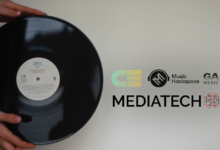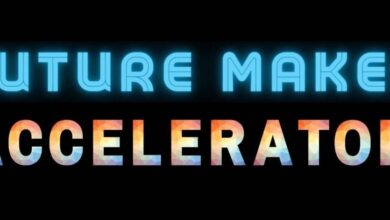
Meet the big hearted, shoe collecting fanatic, insanely talented drummer, Jason Perez, Co-founder/CEO of Tunes For A Minute.
What most people don’t know about Jason, is that early on in his musical playing career he actually picked up a bass way before he started shredding on skins. It was out of frustration he turned to drums quickly realizing he was where he needed to be.
Fast forward over a decade, Jason’s knowledge of the music industry continued to grow, and he eventually realized that most musicians could use help finding opportunities, while most bars and venues could use help finding solid talent and developing compelling content. Combining his passion to help others succeed, with a consistent problem he identified, Tunes For A Minute was born; creating solutions for musicians and venues to collaborate to bring each other more value, while developing more content for everyone involved.
Find out how a guy that has never picked up a business book or studied the music industry, was able to build an incredible platform for his local music economy, by being helpful and putting other’s needs before his own. A wonderful example on how to lead from the back.
To find out more visit: https://www.tunesforaminute.com/
What was it that inspired you as a kid to pursue percussion in particular?
Jason: I think it really was as simple as I wasn’t patient enough with my fingers too, to kind of go down any other road. I started on base, and I just got really bored, I was too fidgety. And I was just always the kid that was like, shaking or tapping on things typical drummer stuff, but after playing bass for like, three months, I thought, this isn’t for me. I just got into just the, it was the energy of it all, you know, like, the drummer kind of changes the band entirely. And it’s, it’s all about, as they say, it’s not what they play, it’s how they play. And so it’s like that, that really drew me into if I hit it this way if I’m a little lighter in this part then everybody feels something different. And that really intrigued me.
You’ve made a lot of music with your brother, Adrian, in Beco. Did you both pick up instruments at the same time, and you had bass and he had guitar? And then you said, screw it, I want to play drums instead? or was it that you both took a liking to the instrument that really spoke to you?
Jason: A buddy of ours who played bass, left his base at our house. And so we both really took to that very quickly, where it was like, oh, that’s all I want to do. I want to go to practice again. And then he found out like, this is cool, but I want a guitar. So he got a guitar shortly after that. And then it was about six months before I picked up the drums. But essentially, it was, hey I’m playing this guitar and kind of writing these things and having fun, like, you should grab something that we can kind of make music together with, and I just again, the base was just too I was just not patient enough. And so cool. Let’s do drums.
Stylistically you’re all over the place. I think you’re one of my favorite drummers to watch. Not only are you extremely entertaining, but I appreciate the different styles that you bring to music that otherwise can sound sometimes extremely mundane. Because it’s rock, or it’s indie right? But you definitely bring Cuban flavors, and a lot of jazz undertones to a lot of music that you play. What drummers really inspired you?
Jason: I guess I would say like coming up when I first started playing it was Jose Pasillas, he was pivotal in just like how I heard the drums. He was very intentional. And he was just, good. He was a great rock drummer. And then Thomas Pridgen with Mars Volta. I cried like the first time I heard that, but it blew my mind. It was just like all music can be made like this. Yes. And then from there, I mean, it’s kind of funny because I’m not a, I wouldn’t say I’m a drummers drummer, because later in my career that I started listening to just drummers and really diving deep, which in that regard, it would be Steve Gadd, any day, just the way he plays the drums, he sings with them you don’t have to hear much from him to know it’s him, you know? But, I would say after Mars Volta after Incubus, it would be like Frightened Rabbit and Radiohead, that was like the second wave of like, oh, look at this drumming. And this is so much different. And it’s so much more simplistic. And that really took me for a very long time where I had all this energy and I was like, ah, I want to play the drums, and then kind of call them down but then wanted to, to sort of embodying that low energy if you would.
I guess in the jazz world, it would be Elvin Jones. Once I started getting into jazz, he was my guy and Art Blakey those two for me and in, in just specifically with jazz, obviously, they were kind of the same thing as Steve Gadd, just the way they did things and how intentionally were with what they were playing. And, I mean, in a lot of guys, a lot of jazz guys always say, sing when you’re playing the drums. Because it’ll come out more naturally so you can hear some of their old stuff where they’re humming because they’re getting into it. And, and it’s like, that’s cool. I don’t think people really appreciate that. Especially in drums, I think it’s just overlooked a lot of the times because you want the flashy and the tops. So it’s the age-old battle.
How did tunes for a minute materialize and what did that process look like for you?
Jason: So, it started with inspiration from Instagram. As I like, coming out of seven years of playing music, my brother I was jaded, I was kind of disappointed disillusion and just kind of we had hit a wall with how music was being done, and even how we were doing it and contributing to things and, and then, so I kind of stepped away from music altogether, two, three years. And then just one day realized that I could never quit. So I decided if I was going to try to get back into that world, I was going to do it differently. So instead of wanting to start a band, or go sit in with some guys for a few shows, and instead of that, I decided to just break the norm of, of what you’re supposed to do with other musicians, and just hang out, and, and not really looking for anything else and not really trying to meet people to start bands, etc. It was just really just about hanging out.
And so the inspiration all that being said, the inspiration in that time was Instagram because it was before the sponsored ads, it was before stories, it was before a bunch of stuff that we don’t like now, but it was just more organic. You can find a lot of stuff that would help you on your journey guys teaching you how to do stuff, guys explaining marketing, etc, and it felt like it was easy to find that on Instagram and so difficult to find that in your local scene. So the idea then was to just get together with other musicians write a one minute tune. And then that’s that hang out for a little bit and chat them up, see what they’re up to see what progress they got coming up and all that good stuff. But essentially, I was just introducing myself differently to other people. Right after that, I met Colin, he was like the eighth or ninth episode. And he said, Colins, my partner with tunes for a minute, but he said, this is great. I want to be on all these. And so I told him sweet, yeah, I need a bass player anyway. So we essentially became like a moving band, just playing with different guys and writing a one minute tune taking video.
And we got the podcast going shortly after the 10th episode, and, and it was just a very good way to introduce ourselves to musicians. So we quickly realized that it was an even better way to introduce ourselves to venues. And when we started to take the mentality that we had as musicians and sort of using that with venues, we realized that we can connect that bridge the broken bridge between the venue and the artists. And it came easily because we knew what artists wanted. Because we are artists, so it was well, if we can help them sort of introduce themselves better to a venue, then we can help everybody. Because it’s the age-old oil and how many people are you gonna bring? Well, we’re just a band, we want to play music. And, it felt like, we can do it differently, and help everybody. So that’s kind of it went from a podcast for musicians too, hey, let’s start doing a podcast with venues. And then we started to see problems, the problems on both sides that they were talking about, we thought, okay, screw it, let’s connect those dots.
What are you hoping to accomplish long term with tunes for a minute? Where do you see tunes for a minute a year or two from now?
Jason: I would say I mean, the short term would be, we want to be a place where musicians can go to, I mean, really get shows. That’s like the first one. Because it’s money, people need money. But then we also I mean that the main goal, the big one, would be the ultimate resource for musicians. So our tagline is content, community opportunity, we want to be able to provide those three to every artist that we can, and that’s willing to work with us. And we realized that the fastest way there would be handling live shows. So being able to, almost like a subscription kind of thing, where it’s like, hey, work with us, this is the contract. And we will have six shows a month for you. Depending on where you live, it’ll be this many bars or it’ll be whatever. So essentially, it’s like you plugin so you’re not just going and getting a show you’re going and now you’re getting plugged into a whole network of venues and other artists. So say you’re just coming up you don’t know kind of what you’re seen looks like where you should go to get a show. Who do you talk to first how do you present yourself? How much should you ask for, never undercut blah, blah, blah? It’s almost like just a resource in a network in a kind of like, bam, you’re there you’re now in school, you’re in session with your first show. So that would be the way we’ll do that I see for the next like two years.
What are you hoping for changes on the venue and musician relationship standpoint?
Jason: Specifically with that, I would say that they realized they need each other. Venues need bands, bands need venues. And to, be fair, I think musicians take advantage of that more than the venue, a lot of the times, musicians will act like, or even just now, the way that a lot of people are just kind of like your hands in the air, what are we going to do can’t really play shows, and it’s if we take that approach to it, then yeah, your local venues might not open again. I kind of want bands to realize that the more we do to help the musician, or help the venue and promote the venue, the more it’ll help us. And, vice versa, the venue is always going to be worried about their bottom line, and they don’t care about your art. They’re trying to raise their hand in a busy market to get some attention is just as much as the next guy. So they could also learn from that, the fact that without a band that you treat so poorly, you wouldn’t have any entertainment at all. It’s tough because that’s the reality, but I’m hoping that yeah, post, if there is a post, Corona then that relationship will begin to mend itself, whether we’re involved or not, that everybody would realize, if we did this together we could do better.
We know that a lot of venues obviously are closing their doors because they can’t keep up with what’s going on. What would you recommend to venues or how are you seeing maybe you’ve seen some good examples of venues that are starting to change up their models a little bit to kind of cope with what’s happening around them right now. What does that look like what have you seen?
Jason: It’s the obvious stuff the live streaming and figuring out how to make that more of an experience and really just upping the quality of those, those videos, those streams, it is kind of where few venues have started to realize that if everybody’s going to be doing this, we got to make ours different. And if we start with quality. Our first live stream was the one we did with a venue here called Pollyanna. Well, it’s a brewery but they do have a pretty good stage too.
But Pollyanna and St. Charles, the first one we did was actually all with iPhones, we used switcher technology. But it worked itself out because it was 1080. And we could switch things up. But anyway you don’t have to get insane, you don’t have to go buying new cameras, there are definitely solutions out there that will make it easy for you. I think the one thing that the venues I’ve seen kind of thinking ahead are, okay, well, we need to get a better internet here. And we need to invest in some cameras, and some streaming software, and it’s like, yeah it sucks because you’re not making a whole lot right now. But you do need to put down some money for that, because it’s the right now anybody can compete with subterranean B kitchen, Metro, all these venues in Chicago they’re the ones that are going to be held to a higher standard with this whole thing. But they got to start doing something, you can’t just, well, geez, I don’t know. And it feels like, we tried to get some stuff going with a few venues here and there, and we got some bites. And sometimes it’s just like, no we’re just gonna keep the doors closed for now and see what happens. It’s like, what are you gonna do?
What were some aha moments for you on developing tunes for a minute? And from beginning to where you are now, that if somebody was an aspiring entrepreneur that wanted to help their community in a way meaningful, and maybe in alignment with what you’re doing, with tunes for a minute, what were some of those big learning lessons for you that would help somebody like that along their way, and journey?
Jason: Honestly, I think that the biggest one, number one, is when you step into that role of like, I want to take this new idea somewhere, I want to turn this thought into the material and, the biggest thing is always on. Always be selling, I guess you kind of have to live in that, where it consumes you and then your life just kind of everything around you starts becoming that. But I guess practically, it would be relationships, and it would be the biggest things that we’ve done with tunes for a minute have started with what? Conversation every time I mean you don’t get anything started outside of that. So picking up the phone and calling, making it a point when you meet somebody to be like, hey, even if you don’t know what you’re going to call them for just a expect a call from me at some point in the future, I’d love to talk to you about whatever, it doesn’t matter because if there’s something you do want to do it’ll come up. And a lot of times there are things that we don’t even know that are going on in the background, where if you just spoke up, the ball would at least start to get rolling.
Who are the people on maybe the business side of things like the people that inspire you or their books that you’ve read that have helped you? What resources would you recommend? So it could be books could be podcasts, what gets your business and creative juices flowing on that side?
Jason: I’m thinking of podcasts, but it’s actually a Spanish podcast that I was listening to. They had a few different stories of entrepreneurs. And that was really encouraging. I can’t remember the name of the episodes, but anyway, there was one specifically I’m so bad with names there was one specifically that was man. I could look it up but that’s cheating.
Any books in particular?
Jason: You know what, man not on the business side I have, quite frankly never read a book, on business.
When people think about tunes for a minute, what do you want to come to mind for them?
Jason: For the audience, I would say, unique experiences, cool shows for the audience, it would be all about the events that we put on, and just kind of letting the people with kids that can’t go to shows they don’t have time to go searching forums to find local bands to go listen to but they know that they’ve got, you know, they can go-to tunes for a minute, an event, and it would be local, it would be real, it would be cool and just a unique experience. But even the guys that are plugged into the scene would still have a good time. So for the musician, that sort of showed itself to us in the midst of all this because we started getting calls and texts from different musicians that we’ve worked with that were just very grateful for us helping. So whether it was we booked a show, we found him a bass player, we subbed in for one of their gigs, we drove to the city to drop drums off for them because which we’ve done and whatever it is, we do what we can it was coming back more and more where they were like, hey, just thanks for helping. Thanks for helping us do what we love. And if that’s what they remember us as then perfect.
You had a drive to the city to drop drums off?
Jason: It wasn’t an emergency thing. He asked me the night before but it was a buddy of mine, Chris Sanchez, he had drums set up somewhere else for the studio. And he’s like, dude if I take this apart like I didn’t even put it two and two together. But if I take this apart now, the session tomorrow is gonna take twice as long for no reason. I’m like, it’s fine. What time do we need a meet up and blah blah, blah?
This is one of my favorites. If you had a superhero power, what would that superhero power be?
Jason: Control metal. Magneto 100% I would control metal all types, all of it. You can control everything around you almost all the time. Almost all the time. You can move the earth if you want. But also you can fly. I mean, you can fly wherever he wants because he can just make the metal move that he’s wearing. Like, come on, man. Superman’s overrated because oh my god. So you can do everything and you don’t die or whatever.
So how do people get a hold of you? How do people get involved?
Jason: Tunes for a minute and everywhere Facebook, Twitter, Instagram, YouTube, which we are putting a bunch of stuff together to kind of ramp up the YouTube. That’s definitely not looking great and then me personally, just Jay plays drums on Instagram. That’s really all I mean, I’m on Facebook, but, man, I never get on there. I’m on Twitter. Jay plays drums the same thing. Yeah, we’re definitely most active on Instagram. So yeah, if you want anything and you’re in the Chicago area you want to hang out, hit us up. Anytime.
To keep up-to-date with community spotlights and more, subscribe to our weekly newsletter here.






